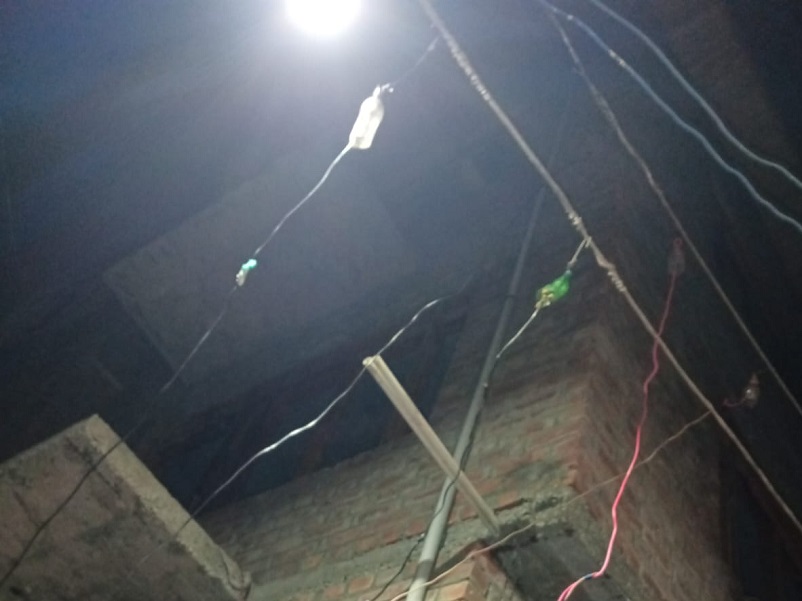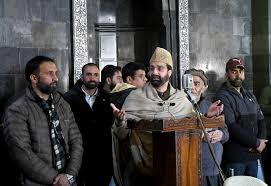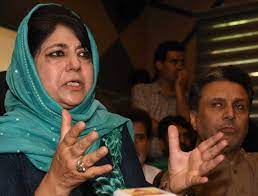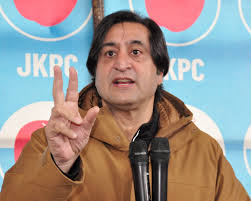Residents, who claim they have this winter been battling the worst power crisis in decades, accuse the government-run Kashmir Power Distribution Corporation Limited of adding insult to their injury
The Valley is shivering in the cold amid frequent power outages. But what has left many chilled to the bone is the under-fire electricity department’s attempt to hit back by publicly shaming alleged pilferers, mostly poor people whom previous administrations tended to indulge.
Residents, who claim they have this winter been battling the worst power crisis in decades, accuse the government-run Kashmir Power Distribution Corporation Limited of adding insult to their injury.
The absence of a similar shaming campaign in Jammu has led to allegations of regional discrimination.
Hooking has always been rampant in Jammu and Kashmir but the elected governments of the past tended to overlook the practice in the poorer neighbourhoods. The administrations knew that in the absence of any substantial power subsidy, the poorer families would have to shell out half their earnings to pay their power bills as costs shoot up in the winter.
However, lieutenant governor Manoj Sinha’s administration appears unwilling to grant any such concession. The government claims the Union Territory suffers losses of Rs 3,400 crore annually in power revenue shortfall.
The power corporation has in recent weeks posted hundreds of pictures and videos of alleged pilferage, many of them featuring the consumers allegedly involved. The department has been issuing daily warnings to consumers of legal action for power theft.
“Look for this space as we start naming & shaming those consumers who indulge in hooking, bypassing meters and exceeding agreed load. Name, Consumer ID, Address, House — all will go into public domain. Let us end the loot,” the corporation said in a post on X on December 9, launching the campaign.
Although the government’s drive to check power theft has found support among many residents, its public-shaming campaign and sarcastic tone have left many bristling.
“Yes. I am a vociferous supporter of attempts to curtail power pilferage and misuse. Violators and culprits should be heavily penalised and fined,” former Srinagar mayor Junaid Azim Mattu posted on X.
“However, vigilantism is not the answer. A public institution should not descend into sarcasm, denigration and deprecation on Twitter.”
Mussarat Zia, the managing director of the corporation, had shared a video on X and written: “Acting masterclass! People like him will go to any extent to justify hooking. Thought of sharing this 34-second Oscar-winning performance.”
The video appears to show an elderly consumer justifying hooking on the ground that people pay taxes for even small loaves of bread. Mattu and many other residents saw this as an attempt to ridicule consumers that they thought was in poor taste.
The corporation had earlier faced public anger when a video purportedly showed its officials using multiple heaters to warm themselves while consumers faced long power cuts.
Many people see the shaming campaign as an effort to divert attention from the crippling power crisis.
A power department source said that consumers in Srinagar had endured scheduled power cuts of an average nine hours a day, plus six to seven hours of distress cuts (caused by the poor availability of power), since October. The situation outside Srinagar was even worse, he said.
“The situation improved in December with more power imports. The distress cuts were brought down significantly, although the scheduled cuts remained. Over the last few days, a fresh power shortage has forced us to resume the distress cuts, though for shorter periods,” he said.
Kashmiris believe they suffer because of the Indus Water Treaty, under which India gave up some of its claims on three western rivers — the Jhelum, the Chenab and the Indus (all flowing from Jammu and Kashmir to Pakistan) — in lieu of three eastern rivers: the Sutlej, the Beas and the Ravi.
The treaty prevents the storage of water by disallowing big dams, because of which power generation falls steeply during winters. Source






